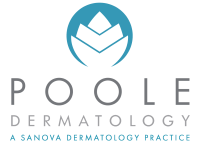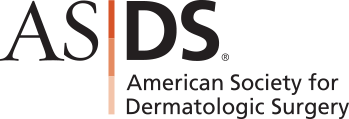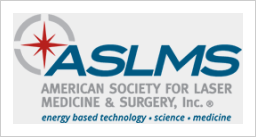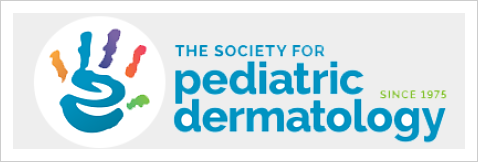
Dr. Jeffrey Poole, MD, FAAD
Cosmetic Dermatology,
Pediatric Dermatology
Medical Expertise of Dr. Jeffrey Poole, MD, FAAD
Dr. Poole specializes in medical and pediatric dermatology - diagnosing and treating a wide range of childhood skin disorders, including vascular anomalies (hemangiomas). Dr. Poole also performs laser surgery and other laser and light treatments.
About Dr. Jeffrey Poole, MD, FAAD
Dr. Jeffrey Poole, MD is a board-certified New Orleans dermatologist providing care to patients at Poole Dermatology.
Dr. Poole also serves as Assistant Clinical Professor of Dermatology at both the LSU and Tulane Schools of Medicine, acting as their Pediatric and Adolescent specialist, and remains a board-certified Pediatrician.
Dr. Poole is also a founder and co-director of the Vascular Anomalies Center – Children’s Hospital New Orleans, an area of his specialty where he has great interest and expertise.
Dr. Poole is a published medical author, and has given numerous talks on a wide range of topics at regional and local society meetings. Teaching medical students and residents continues to be one of his strong areas of interest.
Dr. Poole has privileges at East Jefferson General Hospital, the Medical Center of Louisiana, and Children’s Hospital of New Orleans.
Dr. Jeffrey Poole is a member of several esteemed medical professional organizations. Local organizations include the Greater New Orleans Pediatric Society and the Louisiana Dermatologic Society, for which he previously served as President.
Tips & Wisdom
Early treatment of actinic keratoses (AKs) is generally simple, fast and effective in eliminating these growths, and preventing skin cancer.There a many ways to treat AKs. The most common approach is with cryotherapy with liquid nitrogen (freezing). Essentially this a controlled, localized frost-bite injury that is very quick and effective in eliminating AKs.Other treatments may include electrocautery and curettage (scraping with a special instrument), photodynamic treatment (applying a special ...
Biologics are the most recent advances in the treatment of psoriasis, though they have been in use in the U.S. for nearly 14 years. Biologics were initially considered 2nd line agents, but can now be considered 1st line therapy for severe, diffuse or resistant cases of psoriasis. These drugs include such tongue-twisting names as infliximab, etanercept, adalimumab, and ustekinumab. Biologics are often easy to use and offer dosing regimens that range from twice a week to once every 3 months....
Topical therapies, such as imiquimod and 5-fluorouracil (5-FU), may be prescribed for the treatment of certain types of basal cell carcinomas (BCCs).Ingenol mebutate (Picato® Gel), another topical medication, may also be prescribed for the treatment of BCC. Although this use is "off-label" (meaning the medication was first approved by the FDA for a different medical condition) it may become a leading topical agent in BCC treatment.Some recent studies have shown very good efficacy using both the ...
"I prefer the term 'swimming pool baths' for dilute bleach baths since this is essentially what they are--the same level of chlorine (bleach) that you find in your own backyard or neighborhood pool. We in Pediatric Dermatology have been using this therapy for years with our patients with atopic dermatitis / eczema. This is a very good adjunctive treatment for many children with eczema, especially those with frequent skin infections.It is well accepted that the naturally occurring bacteria on ou...
Topical retinoids (Differin®, Epiduo®, Retin-A®, Tazorac®, .... etc) are a must in most all acne treatment regimens. They are part of the foundation for most acne treatment. All acne lesions start as a clogged pore (comedone), and effective acne therapy requires the removal of this clogged orifice (comedolysis). Retinoids continue to be our most effective topical medicines for this. Additionally, they have anti-inflammatory properties that further help to decrease the red pimp...
Isotretinoin is the active ingredient of several oral acne medication brands, including Accutane (now withdrawn from the market), Amnesteem, and Sotret. Although there have been concerns raised about a range of possible side effects, isotretinoin continues to be prescribed for acne because of its unique benefits. Isotretinoin is by far our most effective therapy for acne, and has the potential to cure someone’s acne. It is a very safe medicine when properly prescribed, and virtually every...
Over the counter (OTC) acne medicines are a good first choice in mild acne, and can be fairly effective. Most all of these contain one of three ingredients, and despite what advertising and television stars may tell you, they work about the same. These ingredients are: benzoyl peroxide (an excellent germ killer, but can be irritating) salicylic acid (a chemical exfoliant), and sulfur (the least commonly used of the 3 because of its unpleasant smell. For moderate to severe acne, or...
Rosacea, a lifelong and potentially progressive disorder, can be broken down into three main types: 1. ETR (Erythro-Telangiectatic Rosacea) or subtype 1 – Red, blushing, flushing rosacea, with lots of veins, and 'broken capillaries'. 2. PPR (Papulo-Pustular Rosacea) or subtype 2 – Multiple red acne-like bumps and pimples. 3. Rhinophyma or Subtype 3 – Enlarged 'W.C. Fields' like nose. ETR may be the initial phase of many people's rosacea. Rosacea ...
Patient Education Resources
Click on the product image below to access medication savings or patient support programs from the manufacturer. In some cases, a form must be submitted along with proof of having purchased the med...
Biologics are a class of medications that can be used to treat eczema, a chronic skin condition characterized by inflammation and itching. Biologics work by targeting specific parts of the immune syst...
The cost of laser tattoo removal can vary depending on several factors such as the size, location, and color of the tattoo, as well as the number of treatments required to remove it. The cost can also...
Click on the image to access medication savings In most cases, this form must be submitted along with proof of having purchased the medication from the pharmacy. Offers may be time-limit...
Treatment for skin cancer will depend on the type and stage of the cancer, as well as the location and size of the tumor, and the patient's overall health. The main treatment options for skin canc...
Education & Training
Dr. Jeffrey Poole received his undergraduate education from the University of Virginia. He earned his medical degree (MD) from Tulane University School of Medicine, while on a full scholarship from the United States Air Force.
Following medical school, Dr. Poole completed an internship and residency in Pediatrics at Keesler AFB Regional Medical Center. His tour of duty included being stationed at Charleston AFB, South Carolina, where he was Chief of Pediatrics for 2 years. Dr. Poole then performed a residency in Dermatology at the LSU School of Medicine in New Orleans, during which he was selected to be Chief Resident. He has attained the highest level of accreditation in his specialty, being board-certified by the American Board of Dermatology.
Professional Affiliations
Poole Dermatology

At Poole Dermatology - Laser Center of New Orleans, our goal is to provide each one of our patients with high quality, personalized and compassionate care for all your dermatology needs. Our range of services include adult and pediatric general medical dermatology, surgical dermatology, skin cancer surgery and the latest advances in cosmetic and laser surgery


